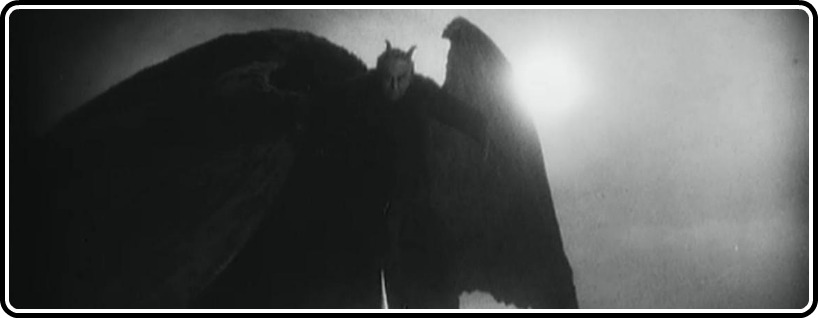
One of the most well known legends of the Renaissance period was Faust, a German necromancer whose exploits transformed into the tale of a man who sells his soul to the Devil in exchange for all the knowledge in the world. Over the centuries, the story has been countlessly reshaped and rebooted. Most recently Russian director Alexander Sokurov (who is most well known for his one-take wonder, Russian Ark) released a free-interpretation of the Faustian tale. The first film to directly adapt the story was made by Frederich Wilhelm Murnau in 1926, just before he moved to America. Based on a two-part dramatic poem by Goethe, Faust begins with the demon Mephisto who has made a bet with an Archangel that he can corrupt any righteous man’s soul. If the Devil succeeds, he will win dominion over earth. The Archangel agrees, on the condition that the Devil set his sights on Faust, an elderly alchemist whose pursuit of knowledge and truth sets him apart from man. The Devil delivers the plague to a local village, forcing Faust to use his alchemic skills to create an antidote. After he fails to find a cure, Faust rejects God and science, turning to a book of dark magic to summon Mephisto (played by Emil Jannings). Once Mephisto materializes on Earth, he presents Faust with a contract stating that he will now be able to cure the plague in exchange for his soul.
The storyline should be familiar enough to even the most casual film fan (and in music history, for that matter). The film has been retold in a plethora of ways, for better and worse. Czech surrealist Jan Svankmajer’s Faust may be the most abstract retelling of the classic legend, while Brian Yuzna (producer for Re-Animator and Return of the Living Dead 3) made one of the worst adaptations ever made, Faust: Love of the Damned. My personal favorite was Brian De Palma’s The Phantom of the Paradise (for more on that look to James McCormick’s own installment for Criterion Consideration). Criterion has already come close to releasing the film with William Dieterle’s adaptationThe Devil and Daniel Webster, which set the story in Depression-era America (and features Walter Huston as the charismatic tempter). George Franju’s Eyes Without a Face was first released in America as The Horror Chamber of Dr.Faustus in order to mask Fanju’s esoteric film for American audiences. Aside from that, Criterion has never brought Murnau’s original horror film into the collection.
I may call it a “horror” film, but Murnau himself never considered it a horror film (the term did not emerge until long after his death). His films often dealt with supernatural material that would later be associated with the horror genre (and in some cases, his films would be classified as the first in their respective subgenre). Most notably is, of course, the vampire film Nosferatu, eine Symphonie des Grauens (Nosferatu, a Symphony of Terror) (1922), an unofficial adaptation of Bram Stoker’s Dracula. Der Januskopf (The Janus Head) (1920), an earlier Murnau film that is now believed lost, may have even been the first version of the Dr. Jekyll and Mr. Hyde story. While Faust may not have been the first adaptation of the classic tale, it still remains a monumental film with some of the most breathtaking imagery ever to be produced in the silent era.
When Sight & Sound announced that Alexander Sokurov’s Faust was going to be their Movie of the month, I finally found my chance to release my own ode to the original film. For some reason, I’ve been sitting on this project for a while, looking for any appropriate excuse to put it out. I find it very odd that Criterion has neglected to release any of Murnau’s films. Criterion’s classic counterpart, Kino, has done their best to bring most of Murnau’s surviving films to DVD in America. In the U.K., The Masters of Cinema have made the best editions available yet. Their 2-disc edition of Faust is absolutely gorgeous, featuring the rarely seen original German version and the export version, two different scores by Timothy Brock and Stan Ambrose, and a lot of in-depth supplemental material. Murnau’s early German films have all fallen into public domain, so Criterion would have no problem picking up Faustif they wanted to. The real task would be restoring the print to the Criterion standard. The MoC edition is beautiful to say the least, but it could stand for a more intensive digital swabbing. As for supplements, all the material from the MoC edition should be brought over, including Tony Rayns recent essay on the subject from this month’s issue if Sight & Sound. An additional score could be added as well. Recently John Zorn released his own musical interpretation of Murnau’s Nosferatu, so I’m sure Zorn could be persuaded to score Faust in exchange for a few minutes in the Criterion closet.
Here’s what it could look like:



